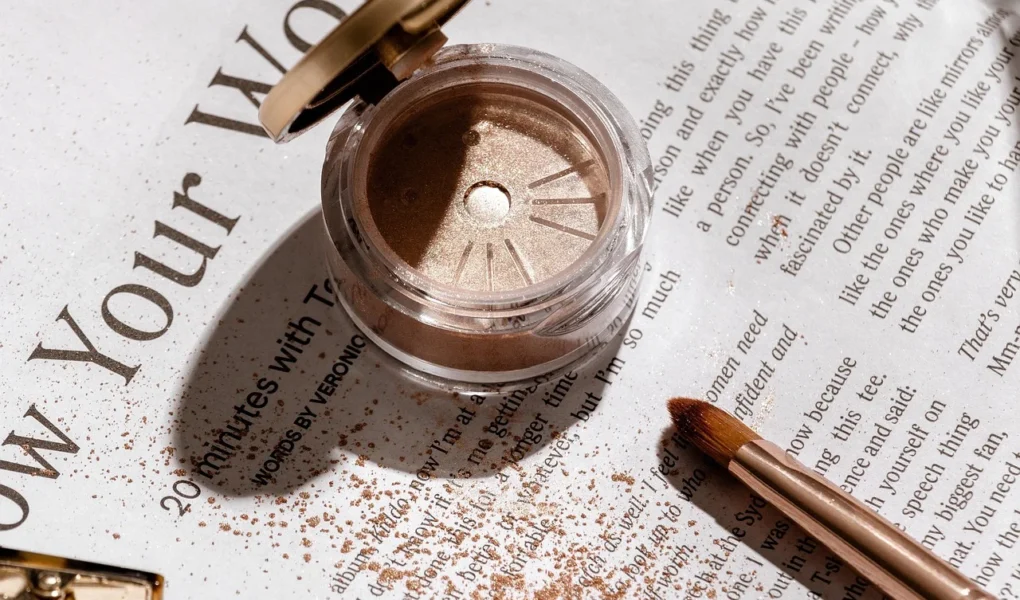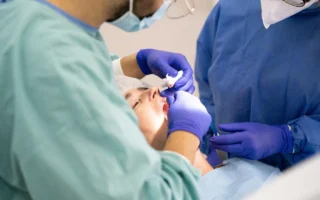The Role of Organic Cosmetics in Implantology and Its Health Benefits
The use of organic cosmetics has gained significant attention in various fields, including implantology, orthodontics, dentistry, gynecology, and medicine. In the context of implantology, the role of organic cosmetics is particularly noteworthy due to its potential health benefits. Organic cosmetics, which are derived from natural sources and free from harsh chemicals, offer a promising alternative for enhancing oral health and promoting overall well-being.
In the realm of implantology, the application of organic cosmetics can play a vital role in maintaining the health of oral tissues and supporting the longevity of dental implants. Unlike traditional cosmetic products that may contain synthetic ingredients and potentially harmful substances, organic cosmetics prioritize the use of natural, plant-based components that are gentler on the delicate tissues surrounding dental implants. This emphasis on organic and natural ingredients can contribute to a reduced risk of irritation, inflammation, or adverse reactions, ultimately supporting a healthy oral environment for successful implant integration.
Moreover, the benefits of organic cosmetics extend beyond mere aesthetics, as they can actively contribute to the overall health of patients undergoing implantology procedures. By utilizing organic cosmetics that are free from toxic chemicals and allergens, dental practitioners can provide their patients with products that promote healing, reduce inflammation, and support the body’s natural processes. With a focus on purity and efficacy, organic cosmetics can align with the principles of holistic healthcare, offering a harmonious approach to implantology that prioritizes both aesthetic outcomes and the well-being of patients.
To explore a range of organic cosmetics that align with these health-focused principles, visit organic cosmetics from Inglot Cosmetic’s collection.
Unlocking the benefits of organic cosmetics in implantology can pave the way for a new era of oral care that emphasizes natural, health-conscious solutions. By incorporating organic cosmetics into implantology practices, professionals can elevate the standard of care and offer patients a safer, more holistic approach to oral health and aesthetic enhancement.
Exploring the Impact of Organic Cosmetics in Orthodontics
Exploring the impact of organic cosmetics in orthodontics reveals the numerous benefits of using natural products in dental practices. Organic cosmetics, such as natural toothpaste, mouthwash, and lip balm, offer a safe and effective alternative to conventional products. These organic options are free from harmful chemicals and artificial additives, making them ideal for patients undergoing orthodontic treatments.
Patients with braces or aligners often experience sensitivity and irritation in their oral cavity. Organic cosmetics can help alleviate these discomforts by providing gentle and soothing care. Natural toothpaste, for example, can effectively clean the teeth and gums without causing additional irritation often associated with harsh ingredients found in regular toothpaste. Similarly, organic mouthwash can offer a refreshing and antiseptic effect without the use of alcohol or synthetic flavors, which can exacerbate oral sensitivity.
Furthermore, organic lip balm can provide much-needed relief for patients with orthodontic appliances. The delicate skin of the lips can easily become dry and chapped during orthodontic treatment, and organic lip balms enriched with nourishing ingredients such as shea butter and essential oils can help maintain moisture and prevent discomfort.
Incorporating organic cosmetics into orthodontic care not only contributes to the overall health and well-being of the patients but also aligns with the increasing demand for natural and sustainable products in the healthcare industry. By embracing organic alternatives, orthodontic practitioners can provide a holistic approach to oral care, promoting a safe and nurturing environment for their patients.
Organic Cosmetics in Dentistry: Nurturing Oral Health Naturally
In recent years, there has been a growing trend towards the use of organic cosmetics in dentistry as a means of nurturing oral health naturally. Organic cosmetics, characterized by the absence of synthetic chemicals and preservatives, have gained traction in the field of dentistry due to their potential benefits in promoting overall oral health.
Organic toothpaste, mouthwash, and other dental products are formulated using natural ingredients such as plant extracts, essential oils, and minerals. These ingredients offer a range of benefits including antibacterial, anti-inflammatory, and antioxidant properties, which can contribute to maintaining a healthy oral environment. For example, organic toothpaste may contain extracts of tea tree oil, which has been shown to have antibacterial properties, effectively combating harmful bacteria in the mouth while supporting gum health.
Moreover, organic cosmetics in dentistry are free from potentially harmful substances such as parabens, sulfates, and artificial flavors, which are common in conventional dental products. By steering clear of these ingredients, patients can reduce their exposure to potentially harmful chemicals and allergens, promoting a more natural and gentle approach to oral care.
Furthermore, the use of organic cosmetics aligns with the principles of holistic dentistry, emphasizing the interconnectedness of oral health with overall well-being. By embracing organic dental products, practitioners can offer patients a more comprehensive and natural approach to oral care, focusing on the promotion of long-term oral health and wellness.
By incorporating organic cosmetics into dental practice, practitioners can support their patients in nurturing oral health naturally, while also contributing to the growing movement towards eco-friendly and sustainable oral care practices.
Advantages of Organic Cosmetics in Gynecology and Medicine
Organic cosmetics have gained significant attention in the medical field, particularly in gynecology and general medicine, due to their numerous advantages over traditional products. The use of organic cosmetics in gynecology and medicine offers several benefits, including reduced risk of allergic reactions and skin irritation. These products are free from synthetic fragrances, parabens, and harmful chemicals, making them suitable for sensitive skin and minimizing the potential for adverse reactions.
Furthermore, organic cosmetics contain natural ingredients such as plant extracts, essential oils, and herbal infusions, which are known for their soothing and healing properties. This can be particularly beneficial in gynecological and medical applications, where gentle, non-irritating products are essential for maintaining overall health and well-being. In gynecology, organic cosmetics are also preferred for intimate care due to their mild and non-disruptive nature.
In the field of general medicine, organic cosmetics are being increasingly utilized for wound care, dermatological conditions, and as part of holistic treatment approaches. The absence of synthetic additives and preservatives reduces the risk of complications and adverse effects, especially when applied to sensitive or compromised skin.
The organic nature of these cosmetics also aligns with the growing trend towards environmentally friendly and sustainable practices in healthcare. By opting for organic cosmetics, medical professionals can contribute to reducing the environmental impact of healthcare practices while promoting a more natural and health-conscious approach to patient care.
In conclusion, the advantages of organic cosmetics in gynecology and medicine are significant, offering a safer, milder, and more sustainable alternative to traditional products. As the demand for natural and holistic healthcare continues to rise, the integration of organic cosmetics in medical settings is likely to become more widespread, further emphasizing the importance of these products in enhancing patient care and well-being.
By incorporating organic cosmetics into gynecological and medical practices, healthcare professionals can align with the growing preference for natural and sustainable solutions, ultimately improving patient outcomes and satisfaction.




